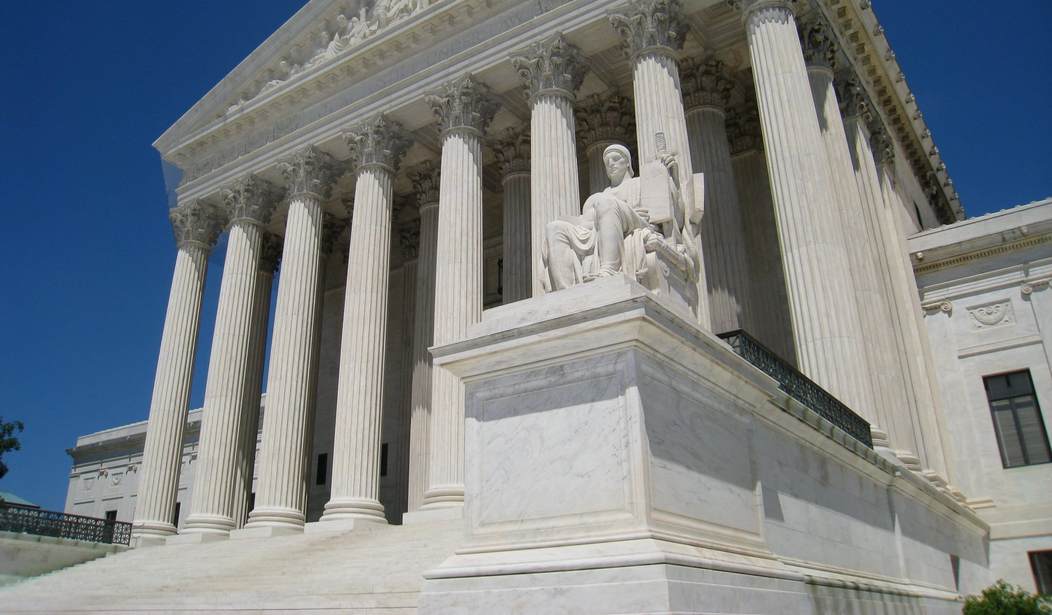On Monday, the U.S. Supreme Court struck down a horrifying Orwellian court ruling that told the Catholic Church in Puerto Rico that it could not define itself as an organization. Puerto Rico’s Supreme Court had ruled that individual Catholic churches and schools do not exist as independent legal entities, holding them jointly liable for claims against the “Roman Catholic and Apostolic Church in Puerto Rico.”
In a unanimous decision in Roman Catholic Archdiocese of San Juan, Puerto Rico v. Yali Acevedo Feliciano, et al. (2020), the Court struck down the previous ruling on technical grounds of jurisdiction that had nothing to do with the Puerto Rico court’s extensive violation of the Catholic Church’s religious freedom to define its own structure. However, Justice Samuel Alito wrote a concurring opinion insisting that the underlying religious freedom issue is important and may need to be reconsidered.
“Our clients are pleased that the court vacated the Puerto Rico court’s ruling that jeopardized their ability to operate without government interference,” Lea Patterson, Counsel to First Liberty Institute, which represented two Catholic schools in the case, said in a statement. “If a court can dictate a church’s operating structure, it’s only a matter of time until government tells churches what they can believe. The Supreme Court’s decision is an important step towards protecting religious liberty in Puerto Rico.”
The case dates back to 2016 when former employees of various Catholic schools brought suit against a number of Catholic entities, including the two schools in question. The Puerto Rico Supreme Court upheld a lower court’s decision finding that individual Catholic churches and schools don’t exist as independent legal entities but rather holding them jointly liable for claims against the “Roman Catholic and Apostolic Church in Puerto Rico,” an entity that does not exist. The true organization unit is the Archdiocese of San Juan.
In its brief to the Supreme Court, First Liberty argued, “By assigning legal personality to an entity that does not exist within the Catholic Church’s polity while dissolving the legal personalities of entities that do exist within that structure, the decision below destroys the hierarchical polity governing Catholic churches and other Catholic entities throughout Puerto Rico.”
The Supreme Court struck down the ruling on jurisdiction grounds, remanding the decision back to lower courts. Yet Justices Thomas and Alito argued that “As the Solicitor General notes, the Free Exercise Clause of the First Amendment at a minimum demands that all jurisdictions use neutral rules in determining whether particular entities that are associated in some way with a religious body may be held responsible for debts incurred by other associated entities.”
They raised important questions that “may well merit our review”: “(1) the degree to which the First Amendment permits civil authorities to question a religious body’s own understanding of its structure and the relationship between associated entities and (2) whether, and if so to what degree, the First Amendment places limits on rules on civil liability that seriously threaten the right of Americans to the free exercise of religion as members of a religious body.”
Alliance Defending Freedom (ADF), a Christian law firm responsible for many Supreme Court victories, filed an amicus curiae brief in support of the Catholic schools.
“The U.S. Constitution protects every American’s right to exercise religious freedom, and central to that freedom is a church’s ability to decide its own structure without civil government intrusion,” ADF Vice President of Appellate Advocacy and Senior Counsel John Bursch said in a statement. “The U.S. Supreme Court properly vacated the Puerto Rico courts’ ill-advised attempt at church governance by deciding for themselves what constitutes ‘the Catholic Church’ in Puerto Rico.”
“Our country has an admirable history of restraining the government’s impulse to police and micromanage communities of faith, and we are confident that the Puerto Rico courts will now abide by this vital constitutional principle, which ADF highlighted in its friend-of-the-court brief and Justices Samuel Alito and Clarence Thomas echoed in their concurrence to the high court’s order,” Bursch concluded.
Churches and religious organizations must have the freedom to define themselves as they see fit. Intrusions into this liberty are a serious injustice, as Luke Goodrich explains in his book Free to Believe: the Battle Over Religious Freedom in America.
Tyler O’Neil is the author of Making Hate Pay: The Corruption of the Southern Poverty Law Center. Follow him on Twitter at @Tyler2ONeil.









Join the conversation as a VIP Member